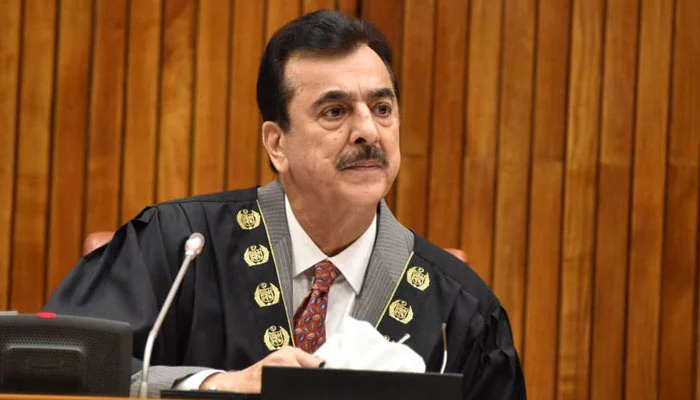Senate Chairman Yusuf Raza Gilani has emphasized that long-term security in Pakistan requires more than military solutions it demands comprehensive justice delivery and socio-economic development to uproot terrorism at its source. Speaking in a recent address, Gilani outlined a strategy aimed at tackling underlying grievances that fuel extremism.
Justice as a Foundation for Peace
Gilani called for a swift, transparent, and impartial judicial process to hold perpetrators of violence and corruption accountable. He argued that when citizens witness fair treatment under the law, it diminishes the appeal of radical narratives and provides confidence in the state’s ability to deliver justice. He urged the strengthening of courts, streamlined case handling, and ensuring that interventions reach all regions of the country.
Development to Disrupt Extremist Narratives
Highlighting the link between poverty, unemployment, and extremism, Gilani underscored the need to invest in education, healthcare, and infrastructure, especially in marginalized areas. He advocated for targeted livelihood initiatives, vocational training, and youth engagement programs to offer constructive alternatives to radicalization and break cycles of deprivation.
Strengthening State Institutions
Gilani urged a holistic, coordinated approach across branches of government:
- Security forces to operate alongside development agencies
- Judicial bodies to receive greater resources and faster case resolution mechanisms
- Local governments and NGOs empowered to support communities at the grassroots level
He called for the establishment of integrated frameworks that facilitate cooperation between law enforcement, judicial authorities, and social development bodies.
A National Strategy With Broad Participation
According to Gilani, the challenge of terrorism cannot be addressed in isolation. A national consensus is vital, involving:
- Political parties agreeing on core principles
- Civil society leaders and religious scholars aligning against intolerance
- Private sectors and philanthropic organizations contributing to economic empowerment
He emphasized that a united front focused on delivering justice and fostering development—serves as the best defense against extremist ideologies.
Forward Path: Actionable Policy Measures
To translate this vision into reality, Gilani recommended:
- Judicial reforms, including new fast-track courts for terrorism-related offenses
- Expanded investment in education and vocational programs for youth
- Community restoration initiatives, focusing on infrastructure and public services
- Enhanced inter-agency coordination through national security councils
- Monitoring and evaluation systems to track progress in security and development efforts
He emphasized that strategic investment and policy coherence can significantly weaken extremist recruitment pathways.
Conclusion: Building Resilience From the Ground Up
Yusuf Raza Gilani’s call to combine justice and development represents a fundamental shift in counter-terrorism thinking. By addressing the systemic injustices and economic deprivation that feed radicalism, Pakistan can build a more stable and secure future.
The challenge now lies in translating this vision into sustainable action, backed by the political will, fiscal resources, and societal consensus needed for long-term resilience.



Comments (0)
No comments yet. Be the first to comment!
Leave a Comment